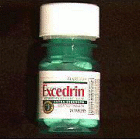 For most people, one drink a day will not cause alcohol-induced liver damage. It is when that limit is exceeded and constantly abused that leads to disease. It is important for the public to know the safe level of intake and to be aware of the harm that drinking can cause to our liver. This means that women can have one drink a day and men can have two. It may be alarming to hear but excessive alcohol consumption is the most important cause of illness and death from liver disease in the United States.
For most people, one drink a day will not cause alcohol-induced liver damage. It is when that limit is exceeded and constantly abused that leads to disease. It is important for the public to know the safe level of intake and to be aware of the harm that drinking can cause to our liver. This means that women can have one drink a day and men can have two. It may be alarming to hear but excessive alcohol consumption is the most important cause of illness and death from liver disease in the United States. How our liver works: When we consume alcohol our liver breaks it down so we can excrete it from our body. When we intake more than our liver can handle, an imbalance occurs and therefore our liver can not break down our proteins, fats, and carbohydrates like normal.
Alcohol consumption can cause diseases like alcoholic hepatitis, cirrhosis, and fatty liver.
Alcoholic hepatitis is inflammation of the liver and 35% of heavy drinkers develop it. Symptoms include: vomiting, fever, jaundice, loss of appetite, nausea, and abdominal pain and tenderness. You can reverse alcoholic hepatitis if you stop drinking.
Alcoholic cirrhosis is the most severe type of these three diseases. Cirrhosis means that the liver has replaced normal, healthy liver tissue with scar tissue. About 10-20% of heavy drinkers develop cirrhosis. Symptoms are same as alcoholic hepatitis. However, it is not reversible. Cirrhosis can stabilize if you stop drinking.
Fatty liver occurs when our liver has a build up of fat cells. The only symptom is discomfort in you upper abdomen. Fatty liver happens with everyone who heavily drinks but will improve after you stop drinking.
Complications of severe alcohol-induced liver disease you need to know:
• Accumulation of fluid in the abdomen
• Bleeding from veins in the esophagus
• Enlarged spleen
• High blood pressure in the liver
• Changes in mental function, and coma
• Kidney failure
• Liver cancer
What does this all mean??
We have to take care of our liver. If you don't, complications can be life-threatening. Therefore, follow the recommended intake of alcohol. And most importantly, if you do have alcohol-induced liver disease, STOP DRINKING!

http://pubs.niaaa.nih.gov/publications/aa19.htm http://www.liverfoundation.org/education/info/alcohol/







